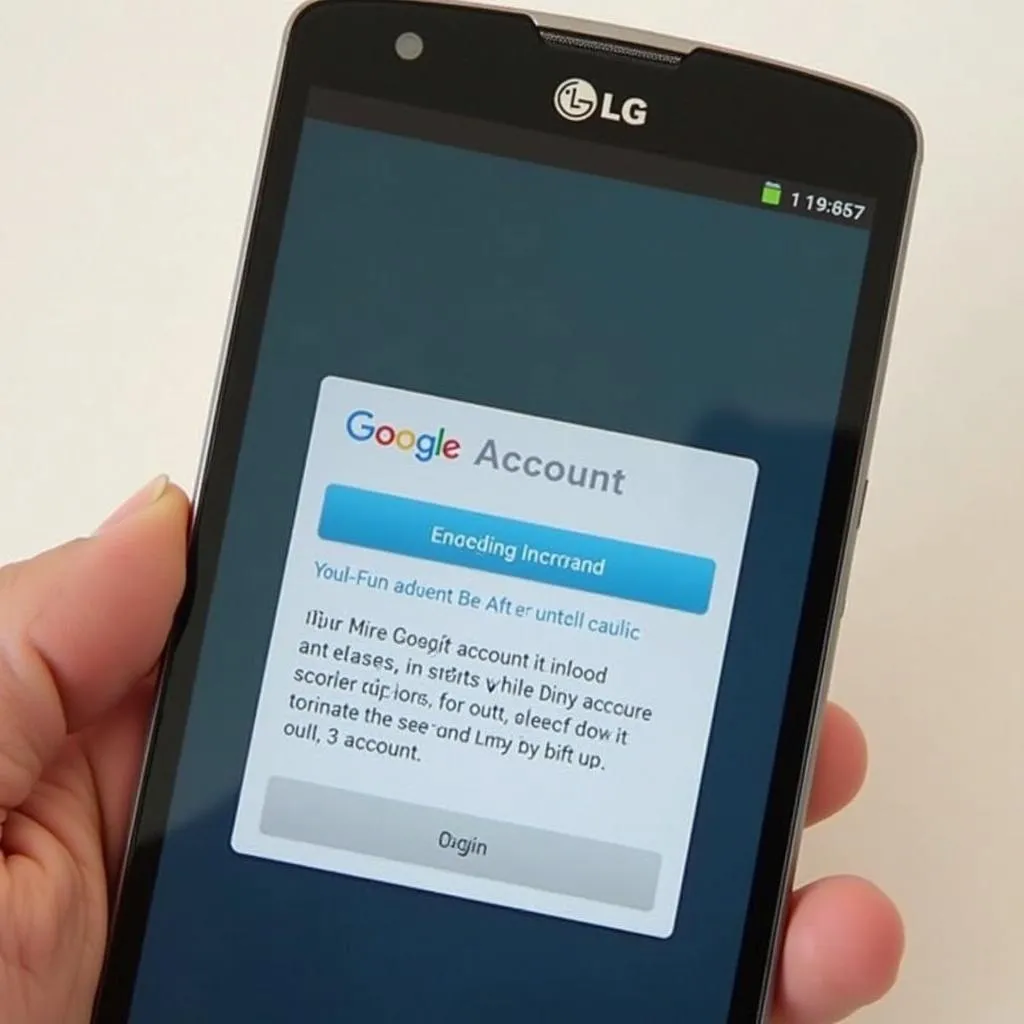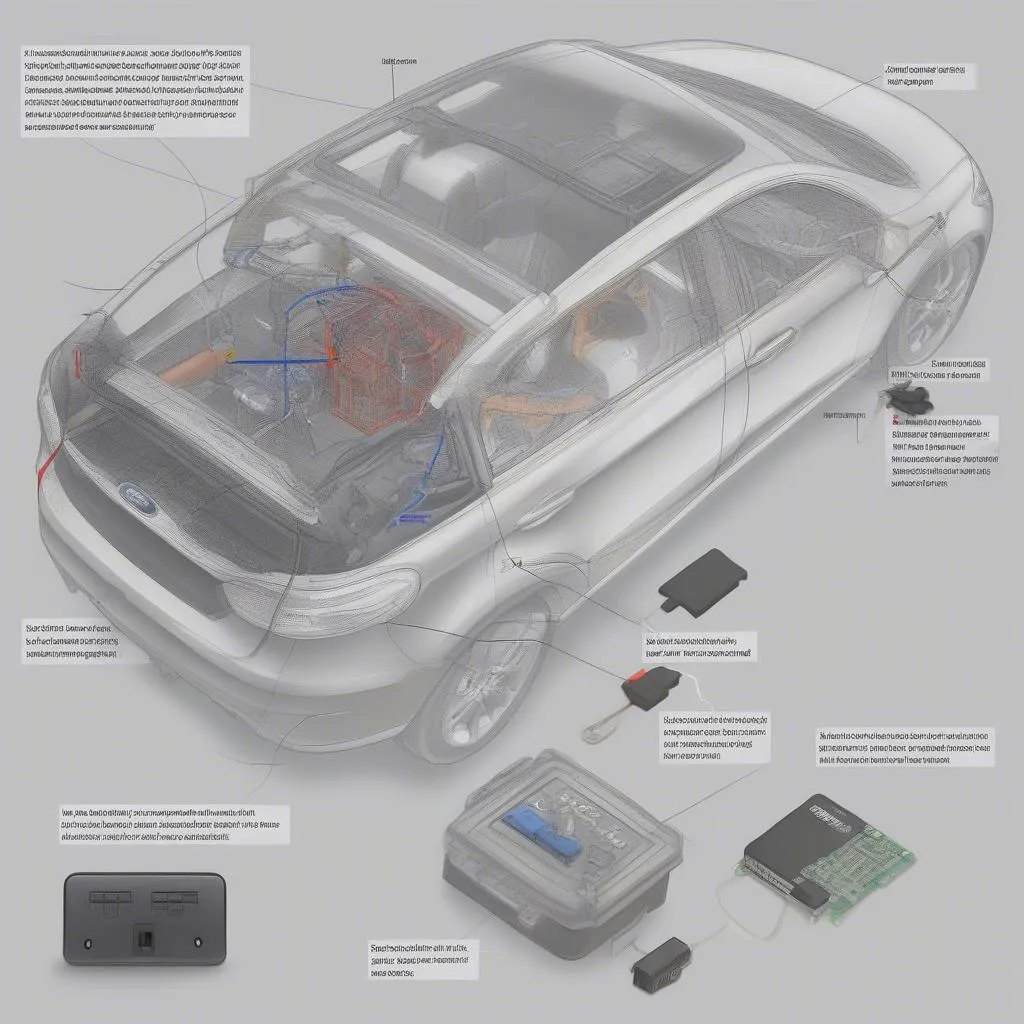Seeing the brake warning light illuminate on your Nissan Xterra’s dashboard can be a nerve-wracking experience. This light, often accompanied by the ABS light, serves as a critical safety indicator, signaling a potential issue within your braking system. Identifying the root cause is crucial to ensure your safety and that of your passengers.
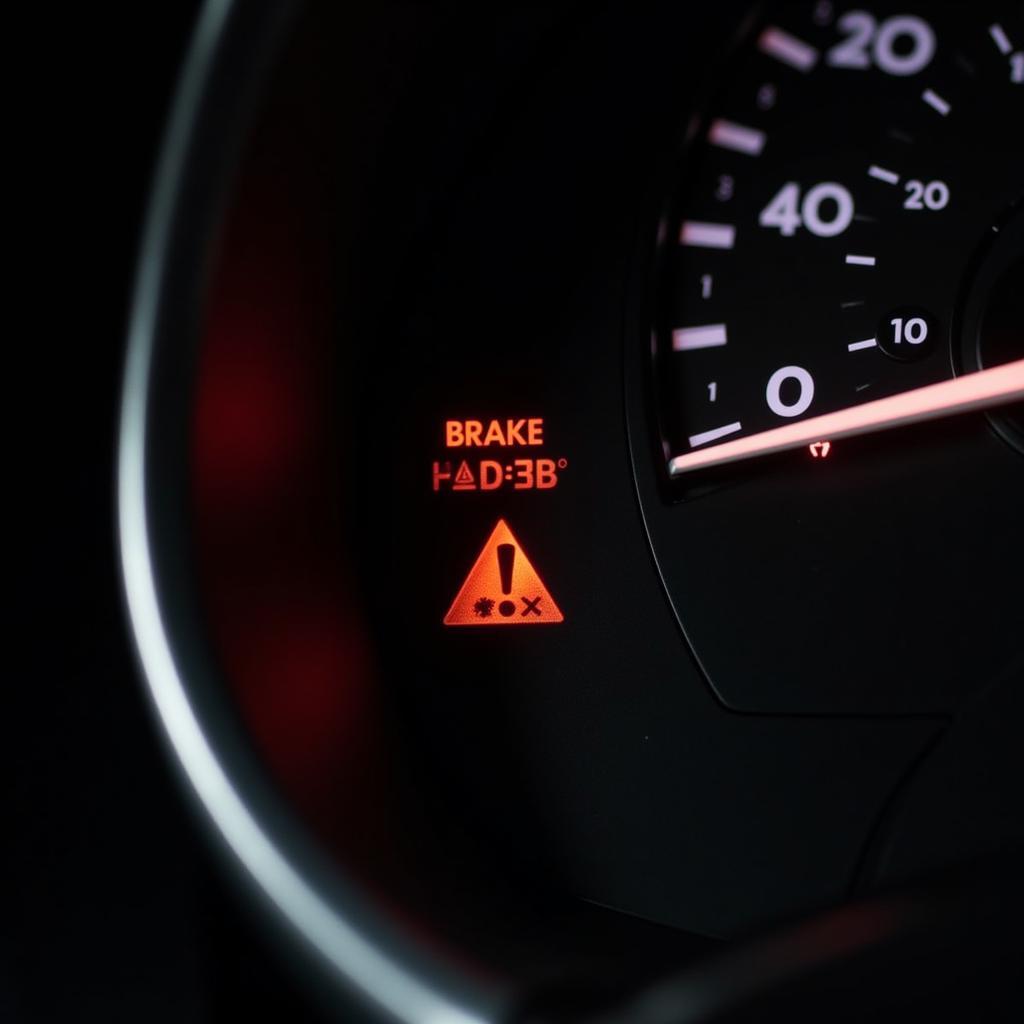 Nissan Xterra Brake Warning Light
Nissan Xterra Brake Warning Light
Common Culprits Behind the Brake Warning Light
While a glowing brake warning light might seem daunting, it doesn’t always signify a catastrophic failure. Here are some common culprits:
- Low Brake Fluid: This is often the primary suspect. Brake fluid, responsible for transmitting force to the brake pads, can diminish over time due to leaks or wear and tear.
- Worn Brake Pads: Your Xterra’s brake pads are designed to wear down gradually with use. When they reach a certain thinness, the brake warning light is triggered, indicating it’s time for a replacement.
- Faulty Brake Light Switch: This switch, located near the brake pedal, signals the brake lights to activate when you apply the brakes. A malfunctioning switch can confuse the system, leading to the warning light.
- ABS Sensor Issues: The Anti-lock Braking System (ABS) plays a vital role in preventing wheel lockup during braking. A faulty ABS sensor can disrupt this system, illuminating the brake warning light.
- Hydraulic System Problems: Leaks or air in the brake lines can compromise the hydraulic pressure needed for effective braking, triggering the warning light.
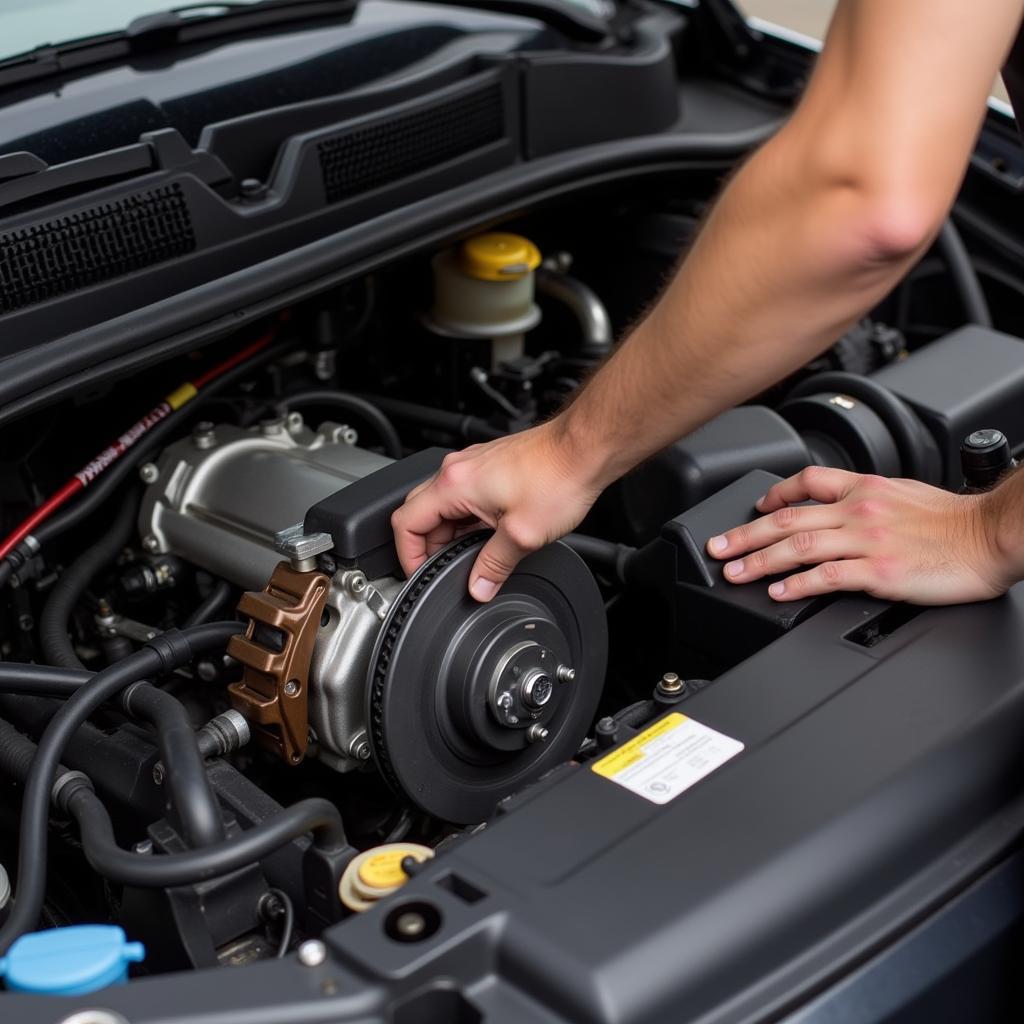 Checking Brake Fluid in a Nissan Xterra
Checking Brake Fluid in a Nissan Xterra
Troubleshooting the Brake Warning Light: A Step-by-Step Guide
-
Check Your Brake Fluid Level: This is the easiest and most accessible step. Locate the brake fluid reservoir under the hood (consult your owner’s manual if needed) and check the fluid level. If it’s low, add the appropriate DOT 3 or DOT 4 brake fluid (as specified in your manual) to the “MAX” line. However, low brake fluid often indicates a leak, requiring professional inspection.
-
Inspect Your Brake Pads: If you’re comfortable with basic car maintenance, you can visually inspect your brake pads. Look through the spaces between the wheel spokes for the brake pads situated on the brake rotor. If they appear significantly thin, it’s time for a replacement.
-
Seek Professional Diagnosis: If the brake fluid level is normal and your brake pads seem fine, it’s best to consult a qualified mechanic. They possess the expertise and diagnostic tools to pinpoint the underlying issue accurately.
“Ignoring a brake warning light is like playing Russian roulette with your safety,” cautions veteran mechanic John Miller. “It’s crucial to address the issue promptly to avoid potentially dangerous situations.”
Utilizing Remote Software Solutions for Diagnostics
Advancements in automotive technology have paved the way for remote software diagnostics. At Car Diag Tech, we offer specialized remote services to diagnose and resolve issues related to your Nissan Xterra’s braking system.
2007 xterra brake warning light
Through our remote diagnostics, we can:
- Identify Fault Codes: Our software can retrieve diagnostic trouble codes (DTCs) stored in your Xterra’s computer, providing valuable insights into the specific problem.
- Analyze System Data: We can analyze real-time data from various sensors within the braking system, such as the ABS sensors and brake pressure sensor, to identify anomalies.
- Program and Install Software Updates: In some cases, a software update or reprogramming might be necessary to rectify the issue. We can perform these updates remotely, saving you time and effort.
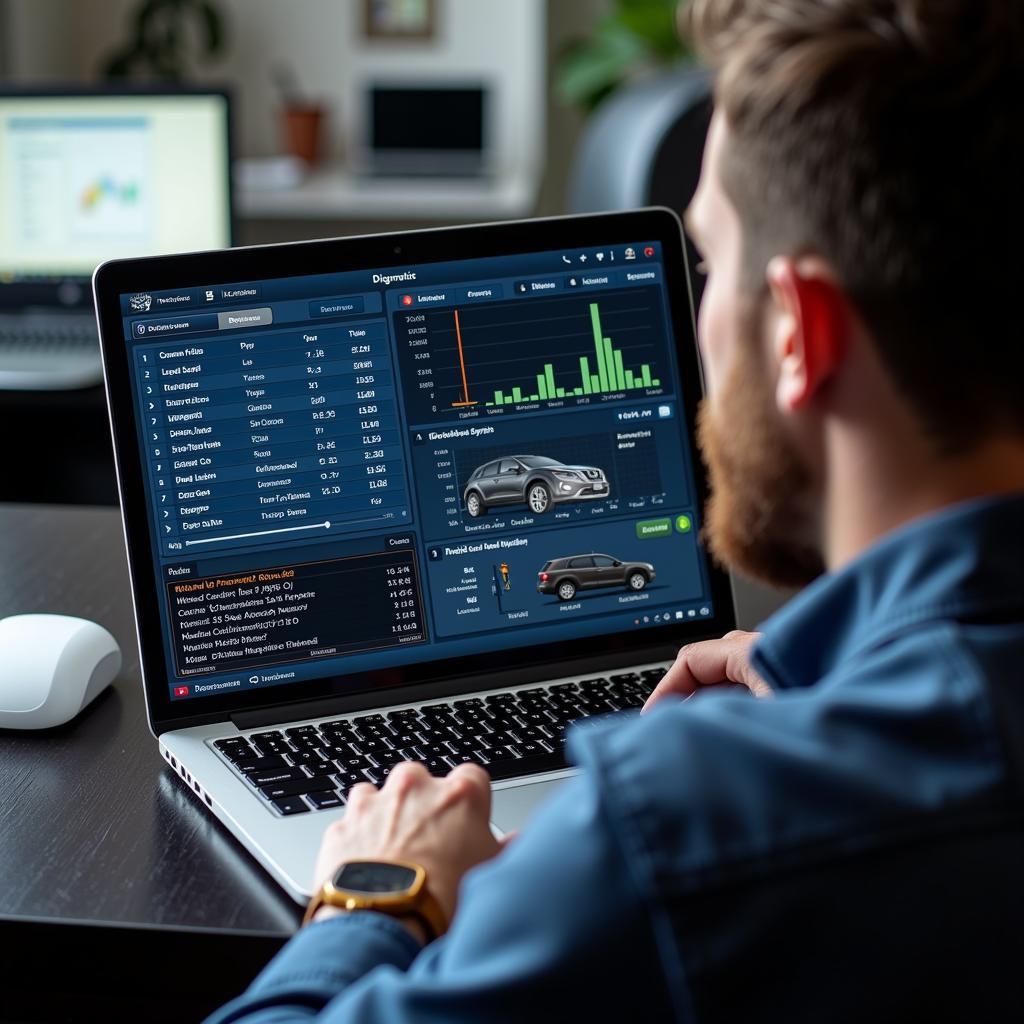 Remote Car Diagnostics for Nissan Xterra
Remote Car Diagnostics for Nissan Xterra
Conclusion: Prioritizing Your Safety
A glowing brake warning light on your Nissan Xterra demands immediate attention. By understanding the common causes and utilizing the appropriate troubleshooting steps, you can ensure your vehicle’s braking system remains in optimal condition. Remember, your safety is paramount. If you’re unsure about any aspect of diagnosing or repairing your brakes, don’t hesitate to seek professional assistance.

